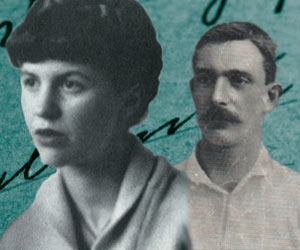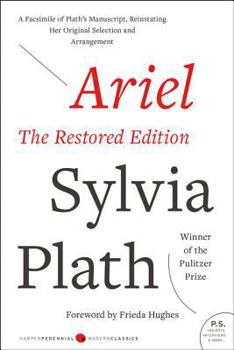Ariel: The Restored Edition: A Facsimile of Plath's Manuscript, Reinstating Her Original Selection and Arrangement
Select Format
Select Condition 
Book Overview
"Made up of poems that are so original in their style and so startlingly accomplished in their confessional voice that they helped change the direction of contemporary poetry, Ariel is a masterpiece." -- New York Observer
Sylvia Plath's famous collection, as she intended it.
When Sylvia Plath died, she not only left behind a prolific life but also her unpublished literary masterpiece, Ariel. When her husband, Ted Hughes, first brought this collection to the public, it garnered worldwide acclaim, but it wasn't the draft Sylvia had wanted her readers to see. This facsimile edition restores, for the first time, Plath's original manuscript--including handwritten notes--and her own selection and arrangement of poems. This edition also includes in facsimile the complete working drafts of her poem "Ariel," which provide a rare glimpse into the creative process of a beloved writer. This publication introduces a truer version of Plath's works, and will alter her legacy forever.
Customer Reviews
The original Ariel
"Love set you going," she wrote, "like a fat gold watch."
"The Voice of God": Sylvia Plath's Masterpiece
An Insightful Depiction of a Human Condition
Breathtaking
Ariel: The Restored Edition Mentions in Our Blog

Sixty-five years ago today, Sylvia Plath and Ted Hughes met at a party in Cambridge. Their connection was immediate, powerful, and violent—a portent of their future together. Almost exactly seven years later Plath would die by suicide.






